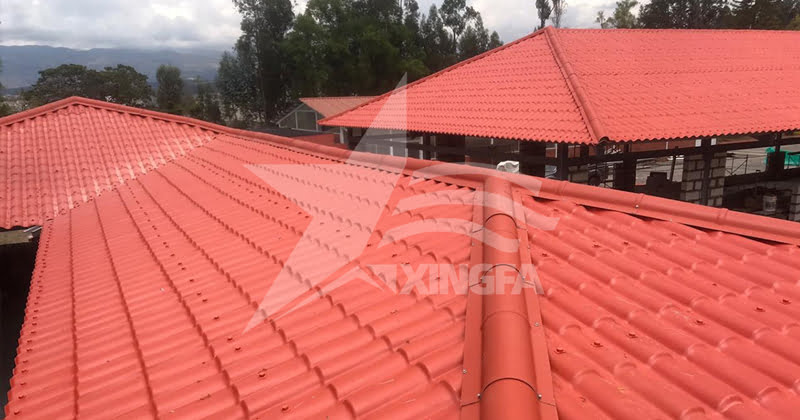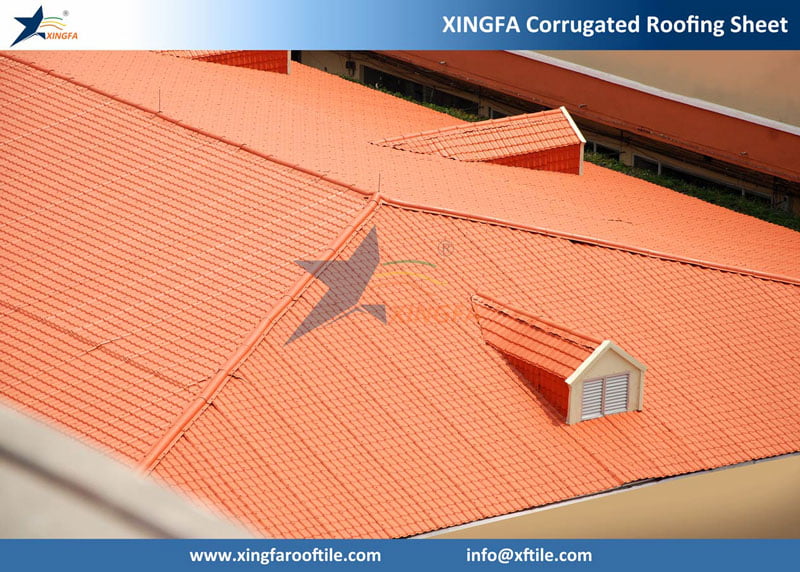Synthetic resin Spanish roof tiles have become a popular choice for homeowners and builders due to their aesthetic appeal, durability, and cost-effectiveness. Understanding the raw materials used in their manufacture can help in assessing their quality and suitability for various applications. This article explores the primary raw materials that make up synthetic resin Spanish roof tiles.

#### 1. Polyvinyl Chloride (PVC)
Polyvinyl Chloride, commonly known as PVC, is a key component in the production of synthetic resin Spanish roof tiles. PVC is renowned for its durability, flexibility, and resistance to weathering, which makes it an ideal material for roofing applications. It provides the structural strength needed to withstand various environmental conditions, from heavy rains to strong winds.

#### 2. Acrylonitrile Styrene Acrylate (ASA)
ASA is another crucial material used in the manufacture of synthetic resin Spanish roof tiles. This thermoplastic is highly valued for its superior weatherability and color retention. ASA ensures that the tiles do not fade or degrade under prolonged exposure to ultraviolet (UV) radiation. Its addition enhances the longevity and aesthetic appeal of the tiles, making them a reliable choice for long-term roofing solutions.
#### 3. Additives
Various additives are incorporated into the raw material mix to enhance the performance characteristics of synthetic resin Spanish roof tiles. These additives include:
– **Stabilizers**: To prevent degradation caused by heat and UV exposure.
– **Plasticizers**: To improve flexibility and workability of the tiles during installation.
– **Pigments**: To provide the desired color and ensure uniformity in appearance.
– **Impact Modifiers**: To enhance the impact resistance and toughness of the tiles.
#### 4. Fillers
Fillers such as calcium carbonate are often added to the resin mix to improve the mechanical properties of the tiles. Fillers can enhance the rigidity, reduce shrinkage, and lower the overall production costs without compromising the quality of the finished product. They contribute to the balance of strength and flexibility needed for durable roofing materials.
#### 5. UV Absorbers
To further enhance the UV resistance of synthetic resin Spanish roof tiles, UV absorbers are included in the formulation. These compounds absorb harmful UV radiation, preventing it from penetrating and damaging the tile material. This helps in maintaining the structural integrity and appearance of the tiles over extended periods.
#### 6. Flame Retardants
Safety is a paramount concern in building materials, and synthetic resin Spanish roof tiles are no exception. Flame retardants are added to the raw material mix to improve the fire resistance of the tiles. These substances help in slowing down the spread of fire, providing additional safety to the structure and its occupants.

### Conclusion
The quality and performance of synthetic resin Spanish roof tiles are largely determined by the raw materials used in their production. Key materials include Polyvinyl Chloride (PVC) for strength and flexibility, Acrylonitrile Styrene Acrylate (ASA) for UV resistance and color retention, and various additives, fillers, UV absorbers, and flame retardants to enhance specific properties. Understanding these materials can help in selecting the right tiles for your roofing needs, ensuring a durable, attractive, and safe roofing solution.
